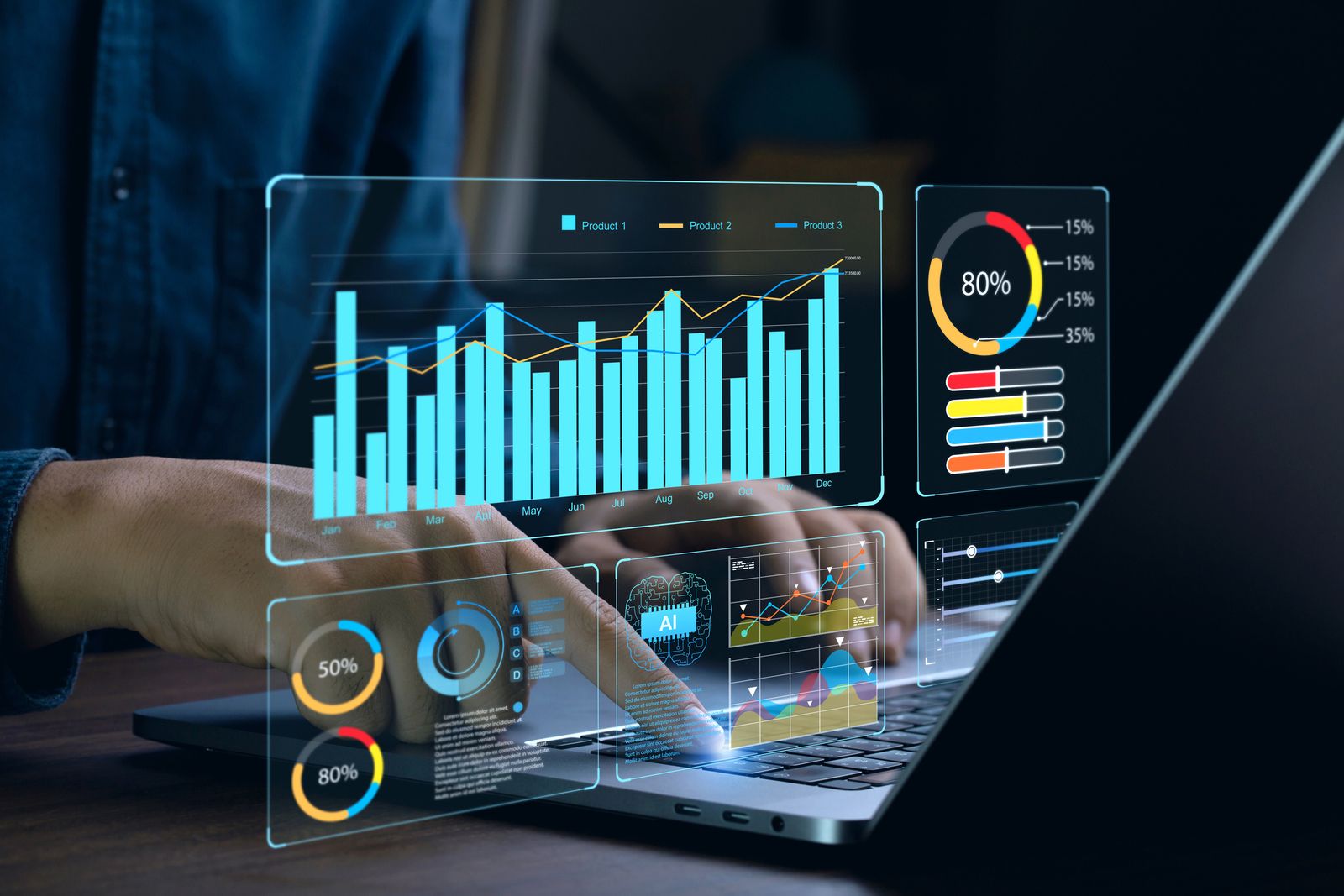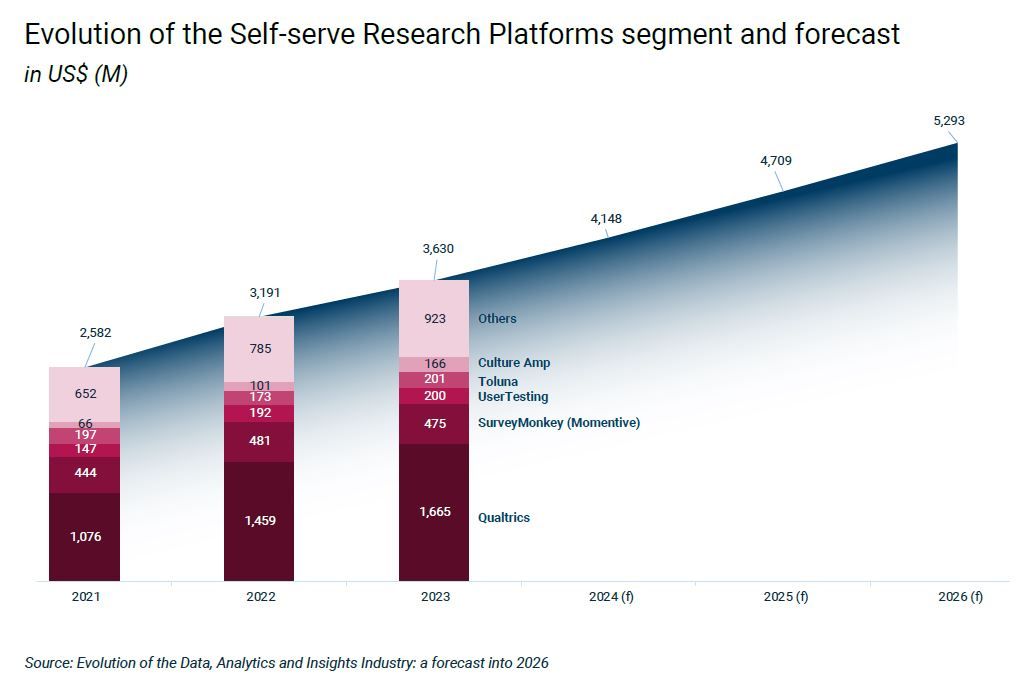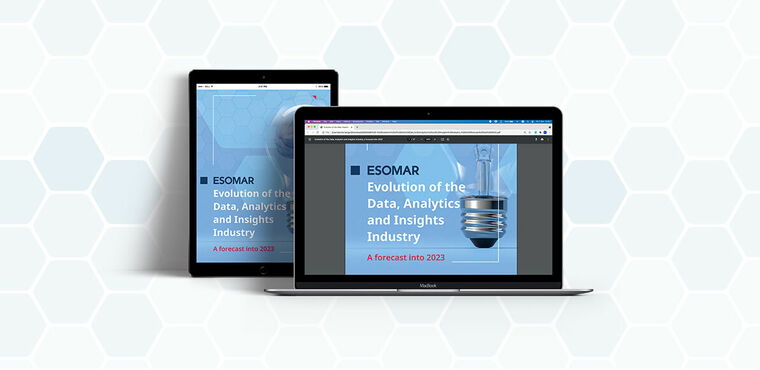Can self-serve research platforms and AI make everyone a researcher?
An insider’s perspective on the future of AI and its effects on the Self-serve Research Platforms segment and the insights industry.

Article series
Evolution of the Data, Analytics and Insights Industry
- Does tech herald the end of research as we know it?
- Keeping up with the data quality challenges
- What are the roses and thorns in your path to embracing AI?
- Can self-serve research platforms and AI make everyone a researcher?
Are you seeking a comprehensive guide to shape your company’s strategy for the next three years? Look no further than ESOMAR’s Evolution of the Data, Analytics and Insights Industry, a forecast into 2026. This report offers not only qualitative insights but also data-driven projections to help you navigate the future of the insights industry. While we may not have a crystal ball, this report is the next best thing.
The following article is an excerpt from the report mentioned above.
Self-serve Research Platforms recorded a successful year, with its linear year-on-year growth reaching 13.8%. Despite representing only 3% of the total insights industry’s turnover, this segment is one of the two that recorded double-digit linear growth rates (the other being Digital Data Analytics).

We had the opportunity to speak with Joaquim Lecha from Typeform to understand the impact of AI, other trends in the segment, and what we should watch out for in the upcoming years. AI’s presence is inescapable in the zeitgeist, but we were more curious about what lies ahead for this evolving technology. His thoughts on the topic are below:
We believe the next big leap for AI is making data interaction as natural as having a conversation with a friend. We envision generative AI giving companies the superpower not just to analyse data but to converse with it. With AI surfacing insights from various data sources, companies can make fast decisions and deliver the right message through the right channel at the right time. We also envision a world where AI learns from the data and automates workflows based on predictions. These advancements aren’t just about efficiency — we believe they will help companies create more meaningful, hyper-personalised customer experiences at scale that drive loyalty and business growth.
- Joaquim Lecha
He also believes the self-serve research platforms will benefit from AI by democratising these tools.
We believe that growth in the self-serve research platform segment related to AI will come from “building the researcher brain” into the platforms. This way, anyone, regardless of skill and budget, can benefit from high-quality insights. We envision this being achieved through features like AI research assistants, AI-generated templates for different use cases, sample size suggestions, accessibility and readability recommendations, and AI-powered analysis and data visualisation tools.
- Joaquim Lecha
Indeed, AI cannot be the only trend impacting our industry, and Joaquim feels the same way. He shared a couple of other pressing trends and how they will affect the industry and the self-serve segment.
1. Increased privacy and security concerns: The rise of AI is already bringing significant challenges to the data, analytics, and insights industry, with increased spam, bots, and deepfakes on consumer panels. […] If spam continues to rise on consumer panels, we believe more customers will shift to building their own customer panels and sourcing insights from more authentic and community-driven platforms like Reddit, Discord, Slack, and Facebook instead of the traditional panel vendors
2. The rise of zero-party data: Asking people to share their information will be increasingly important, especially with the deprecation of third-party cookies, which will trigger a shift towards businesses needing to collect more data directly from customers. This change will require businesses to build stronger relationships and trust with their customers and will force businesses to publish better data governance practices and clearer communications about what customer data is being used for. […] Businesses also may begin to adopt alternate tracking methods like server-side tracking or data from logged-in users.
- Joaquim Lecha
While these trends affect the industry as a whole, we asked Joaquim to share what could hinder the exemplary growth of the self-serve research platforms segment. His concerns lie in the platforms’ accessibility and higher costs for some enterprises.
1. Lagging user experience and accessibility: Complex interfaces and a lack of user-friendly tools can deter users from adopting self-serve research platforms. There has also been a lot of M&A activity in the industry, which has distracted core competitors from innovating as fast as they once did. Companies can prioritise user-centric design, invest in usability testing, and offer comprehensive onboarding and support resources.
2. High costs can be a barrier for small and medium-sized businesses: This can result in behaviour that makes revenue unpredictable for self-service research platforms due to businesses using the platform for a project, then cancelling, and then re-signing up when they need it again. Businesses can offer tiered pricing models, provide value-based pricing, consider discounts for annual or multi-year contracts, and invest in producing ROI content to help buyers justify the investment.
- Joaquim Lecha
Joaquim, however, has a more positive outlook regarding the future of the insights industry, and we couldn’t help getting infected by such an optimistic view.
We envision a future in which collecting customer data and making data-driven decisions is more conversational, accessible, and interactive. We see the industry moving towards a more democratised approach to data and insights, where everyone, regardless of their technical skill level, can gather and derive value from customer data and insights.
- Joaquim Lecha
Curious to read the full interview?
Download the report now to access the full article and explore the accompanying data.
Ajitha Lakshmi Gopalakrishnan
Junior Data Analyst at EsomarArticle series
Evolution of the Data, Analytics and Insights Industry
- Does tech herald the end of research as we know it?
- Keeping up with the data quality challenges
- What are the roses and thorns in your path to embracing AI?
- Can self-serve research platforms and AI make everyone a researcher?


